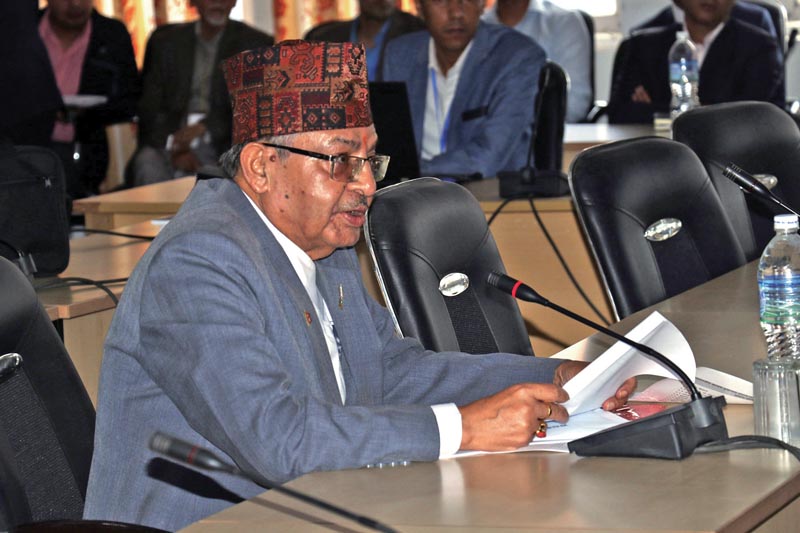Legal experts look at both sides of Public Hearing Committee’s decision
Kathmandu, August 4
Legal experts say the Public Hearing Committee’s decision to reject chief justice nominee Deepak Raj Joshee was based on presumption, not evidence.
Constitution expert Bhimarjun Acharya said none of the five grounds adopted by the PHC while rejecting Joshee was based on evidence. “All these grounds are subjective. The panel said Joshee’s academic certificate was suspicious without proof. How can a body like the PHC reject a CJ nominee on the basis of mere presumption.”
Acharya said there was reason to doubt that the PHC’s decision was influenced by non-related persons whose motive was to reduce the judiciary to a guided and controlled body.
Senior Advocate Surendra Bhandari said none of the five accusations against Joshee was proved. “The PHC said it had rejected Joshee because his answers were not satisfactory and the authenticity of his certificate was doubtful. These are mere presumptions,” he added.
Senior Advocate HariharDahal said he used to fear that the provision of PHC in a parliamentary system could place the judiciary under parliamentary control. The PHC’s decision yesterday had confirmed his fear.
Senior Advocate Satish Krishna Kharel said while it was debatable whether the country needed the PHC, there could be no constitutional and legal justification to oppose the PHC’s decision. “If the PHC took yesterday’s decision to deter justices from indulging in bad conduct, it would certainly help the judiciary live up to people’s expectations; but if the PHC took a decision to intimidate the judiciary, then it would be bad for the judiciary,” he argued.
Kharel, however, said if justices dispensed their duties honestly and if Nepal Bar Association played its role effectively, the government or the legislature could not control or direct the judiciary.
Kharel said that before Damodar Sharma became chief justice, there were instances when judges had to resign for erring in their orders and verdicts. “In recent years, we have seen questionable court verdicts without any action taken against judges,” he added.
Constitution expert TikaramBhattarai said the PHC’s decision had given the message that a CJ nominee should be an able person with integrity. Thus, the decision was an opportunity to reform the judiciary.
Asked if the PHC’s decision could lead to a situation where government could control the judiciary, Bhattarai said, “This is a hypothetical question, but if that happens there is Nepal Bar Association and civil society members to oppose such a move.”






